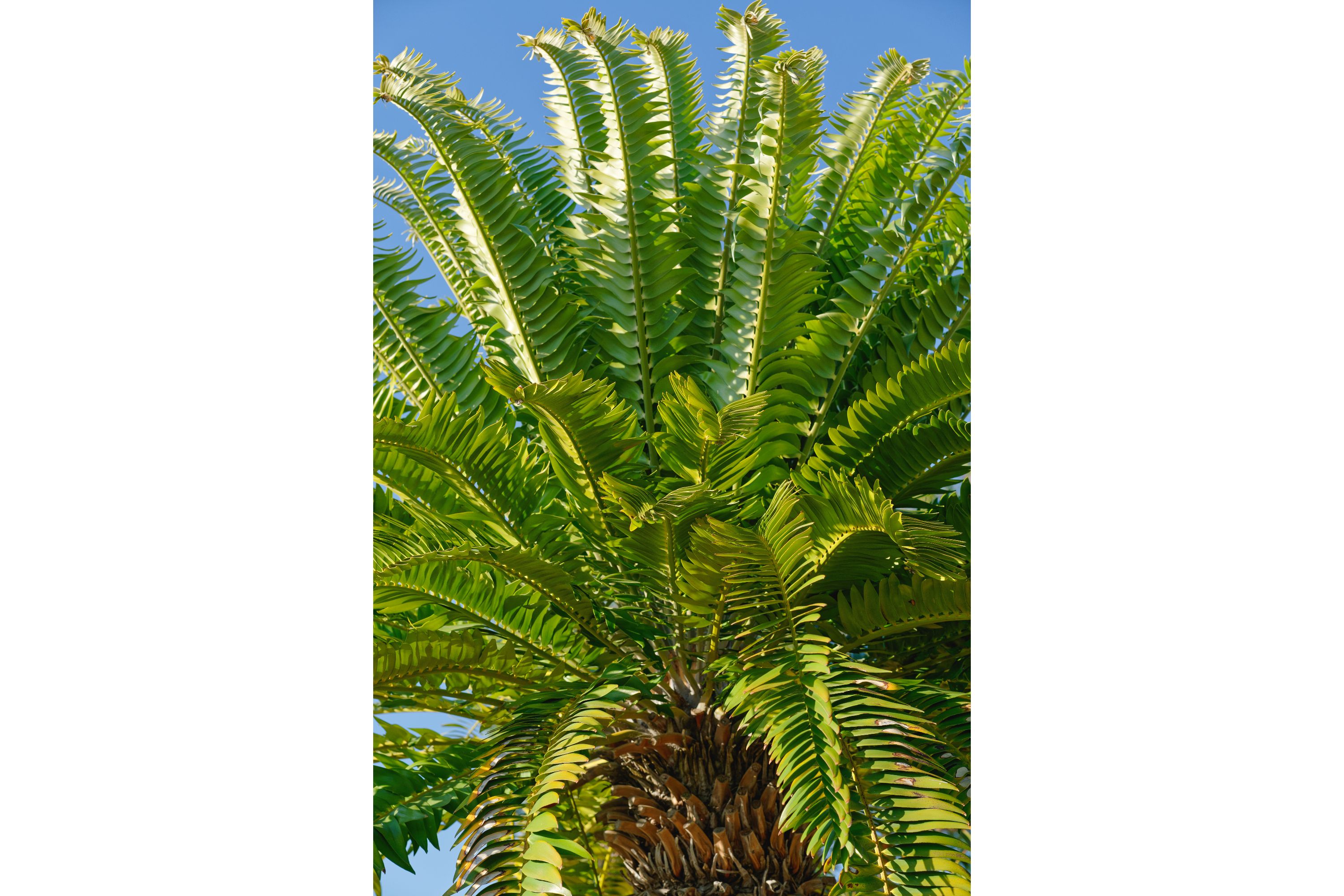Wood'S Cycad
(Encephalartos woodii)

Description
Encephalartos woodii, Wood's cycad, is a rare cycad in the genus Encephalartos, and is endemic to the oNgoye Forest of KwaZulu-Natal, South Africa. It is one of the rarest plants in the world, being extinct in the wild with all specimens being clones of the type. The specific and common name both honour John Medley Wood, curator of the Durban Botanic Garden and director of the Natal Government Herbarium of South Africa, who discovered the plant in 1895. It is palm tree like, and can reach a height of 6 metres (20 ft). The trunk is about 30–50 centimetres (12–20 in) in diameter, thickest at the bottom, and topped by a crown of 50–150 leaves. The leaves are glossy and dark green, 150–250 centimetres (59–98 in) in length, and keeled with 70–150 leaflets, the leaflets falcate (sickle-shaped), 13–15 centimetres (5–6 in) long and 20–30 millimetres (0.8–1 in) broad. E. woodii is dioecious, meaning it has separate male and female plants; however, no female plant has ever been discovered. The male strobili are cylindrical, 20–40 centimetres (7.9–16 in) long, exceptionally up to 120 centimetres (47 in), and 15–25 centimetres (6–10 in) in diameter; they are a vivid yellow-orange colour. A single plant may bear from around six to eight simultaneously.
Taxonomic tree:







